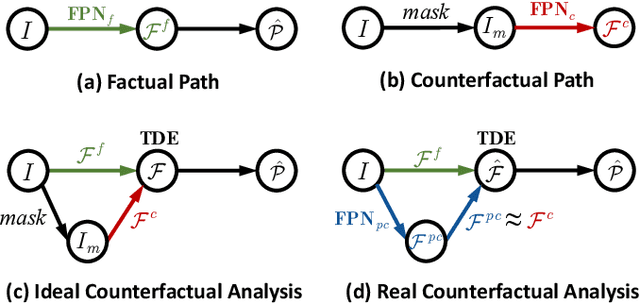Chixiao Chen
CA-SpaceNet: Counterfactual Analysis for 6D Pose Estimation in Space
Jul 16, 2022



Abstract:Reliable and stable 6D pose estimation of uncooperative space objects plays an essential role in on-orbit servicing and debris removal missions. Considering that the pose estimator is sensitive to background interference, this paper proposes a counterfactual analysis framework named CASpaceNet to complete robust 6D pose estimation of the spaceborne targets under complicated background. Specifically, conventional methods are adopted to extract the features of the whole image in the factual case. In the counterfactual case, a non-existent image without the target but only the background is imagined. Side effect caused by background interference is reduced by counterfactual analysis, which leads to unbiased prediction in final results. In addition, we also carry out lowbit-width quantization for CA-SpaceNet and deploy part of the framework to a Processing-In-Memory (PIM) accelerator on FPGA. Qualitative and quantitative results demonstrate the effectiveness and efficiency of our proposed method. To our best knowledge, this paper applies causal inference and network quantization to the 6D pose estimation of space-borne targets for the first time. The code is available at https://github.com/Shunli-Wang/CA-SpaceNet.
TSA-Net: Tube Self-Attention Network for Action Quality Assessment
Jan 11, 2022



Abstract:In recent years, assessing action quality from videos has attracted growing attention in computer vision community and human computer interaction. Most existing approaches usually tackle this problem by directly migrating the model from action recognition tasks, which ignores the intrinsic differences within the feature map such as foreground and background information. To address this issue, we propose a Tube Self-Attention Network (TSA-Net) for action quality assessment (AQA). Specifically, we introduce a single object tracker into AQA and propose the Tube Self-Attention Module (TSA), which can efficiently generate rich spatio-temporal contextual information by adopting sparse feature interactions. The TSA module is embedded in existing video networks to form TSA-Net. Overall, our TSA-Net is with the following merits: 1) High computational efficiency, 2) High flexibility, and 3) The state-of-the art performance. Extensive experiments are conducted on popular action quality assessment datasets including AQA-7 and MTL-AQA. Besides, a dataset named Fall Recognition in Figure Skating (FR-FS) is proposed to explore the basic action assessment in the figure skating scene.
 Add to Chrome
Add to Chrome Add to Firefox
Add to Firefox Add to Edge
Add to Edge